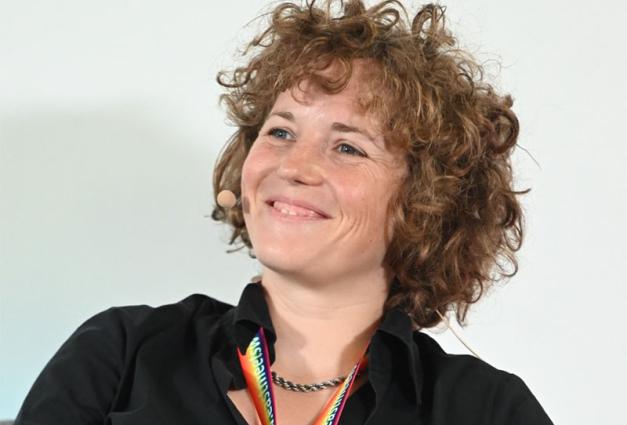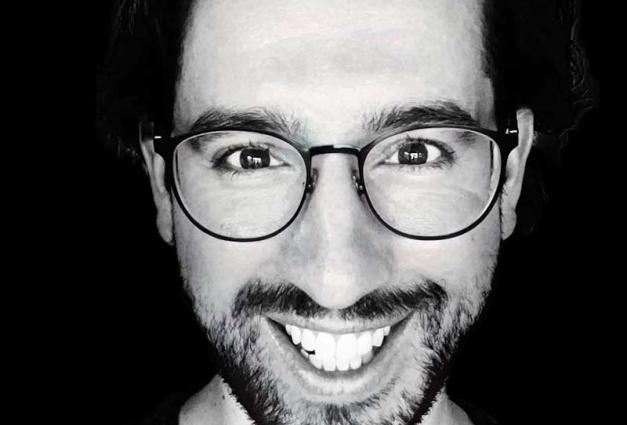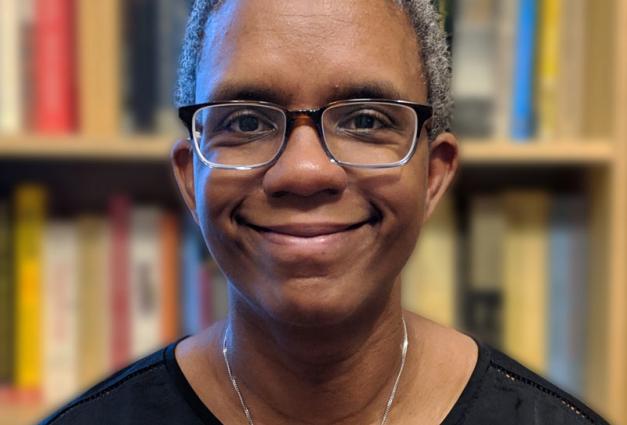Annalisa Myer is a Basic and Applied Social Psychology PhD student at the Graduate Center, CUNY. She uses a comprehensive, intersecting, and accessible science approach: one that promotes globalization and diversity, research integrity and applicability, collaboration across fields and disciplines, and holistic theory-building. Her research seeks to illuminate the perceptions/experiences of Multiracial people while tackling questions related to race, identity, and belonging. She is also a co-founder of Here and Queer (HQ), as well as the Network for Multiracial Scholars (NOMS).
What do you appreciate most about SPSP?
I really enjoy the vast array of social and professional opportunities we have to get involved and meet other members. For instance, I am a recurring moderator for the SPSP writing groups and enjoy running into other graduate students at the annual Conference. I also co-founded a series of inclusive communities, which are all supported by the Community Catalyst Grant Program.
Do you have a favorite conference memory or story?
My first SPSP conference was in New Orleans (2019). I remember flying into the city on Mardi Gras and staying in a hostel for a few days, soaking in the rich history and culture. The experience was really fun! I also remember meeting my academic idols, Dr. Diana Sanchez and Michael Kraus, and attending a series of interesting talks from Drs. Maureen Craig, Kristin Pauker, and Chanel Meyers. I also enjoyed San Francisco (2022), where we hosted our inaugural HQ welcome reception.
What has been your biggest challenge?
For a long time, I never really thought a PhD was possible or even something I wanted to do. I stumbled into my first research lab largely by chance and it wasn't until my mentor started to talk about graduate school that I considered it as an option. Now a few years into my program, I sometimes struggle to see how my values align with psychology or even academia. I think this is a challenge for a lot of up-and-coming graduate students and psychologists. But the community has been what keeps me going.
What path would you have chosen if you had decided to not pursue psychology?
In undergrad, I studied psychology and political science with a minor in Women's, Gender, and Sexuality Studies. I remember entertaining a handful of plans after graduation: joining the PeaceCorps, moving to Taiwan, working at Planned Parenthood, and more. But the one that stuck was the Cornell University Summer Undergraduate Research Fellowship, which I completed under the guidance of Drs. Vivan Zayas and Amy Krosch.
Outside the lab, I also wear a handful of hats: handyman, artist, comedian, model, and actor. (with what spare time?)
Do you have any advice for individuals who wish to pursue a similar path in social psychology?
In 2019, I visited the University of Michigan for their Diversity Recruitment Weekend and met one of their dual PhD students, Erick R. Aguinaldo. Erick was boisterous and friendly. He was unlike any other academic encountered before. He was real: a self-proclaimed academic foo from the hood with an agenda to upend the status quo. Meeting him was transformative to how I approached my career and later, my PhD program. He reminded me to stay true to myself and be authentic (even if the result is unpopular or unsavory to others). He also reminded me that being a student is only one aspect of my multifaceted identity. He is a human, father, brother, poet, artist, and student among many other things. If you're thinking about applying to PhD programs or enrolled but feeling aimless, I challenge you to water new parts of yourself and make time to enjoy life. 5-6 years might feel like a long time, but there is a whole world out there waiting for you (a world that continues well after your program ends). Don't lose yourself in your work and remember to have fun. Find people who make the suck bearable. They will keep you going when things get tough and don't be afraid to ask for help.
Tell us about your current research interests, and any future research interests you'd like to pursue.
Currently, I work with my advisor Dr. Daryl Wout to explore three key areas: interracial interactions, intersectionality, and perceptions of Multiracial people. For example, how do Multiracial people respond to and/or interact with their Monoracial peers? Can we develop effective interventions to mitigate the threats associated with interracial interactions and if so, how? I also have a handful of projects focused on enhancing our understanding of intersectionality and open science in collaboration with the Framework for Open and Reproducible Research Training (FORRT).
In the future, I would like to apply my basic understanding of race, identity, and belonging to applied contexts such as neighborhoods and organizations. For instance, what neighborhoods are most appealing to live in? What safety cues might exist in our environments to enhance belonging? And what challenges do Multiracial people encounter at their jobs, in their neighborhoods, and more?




